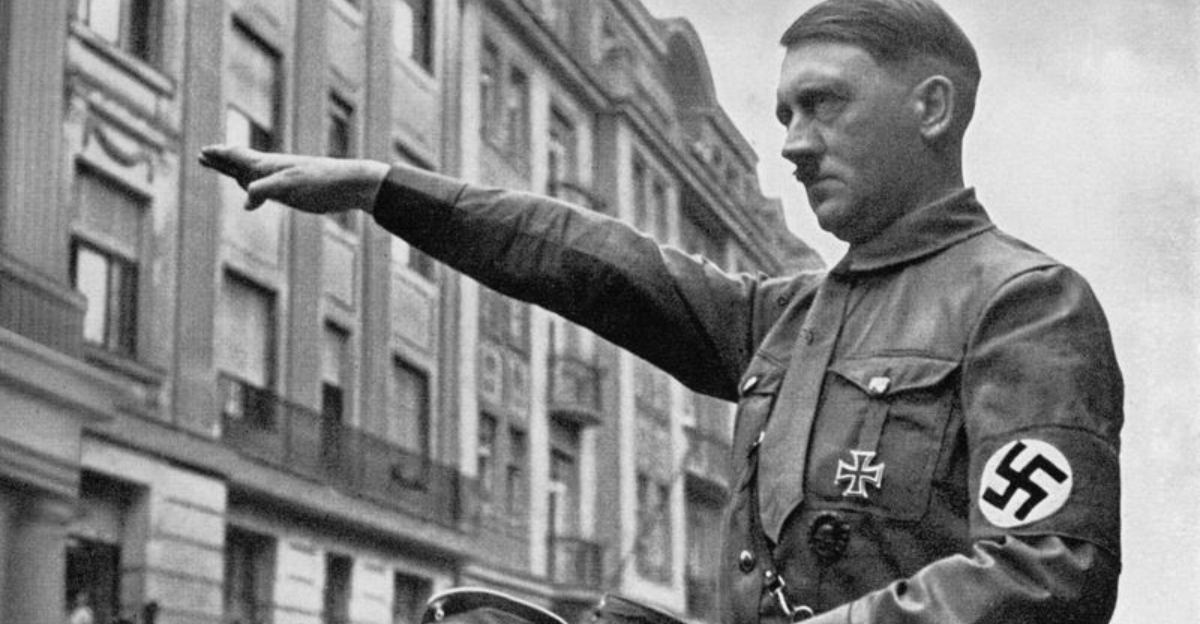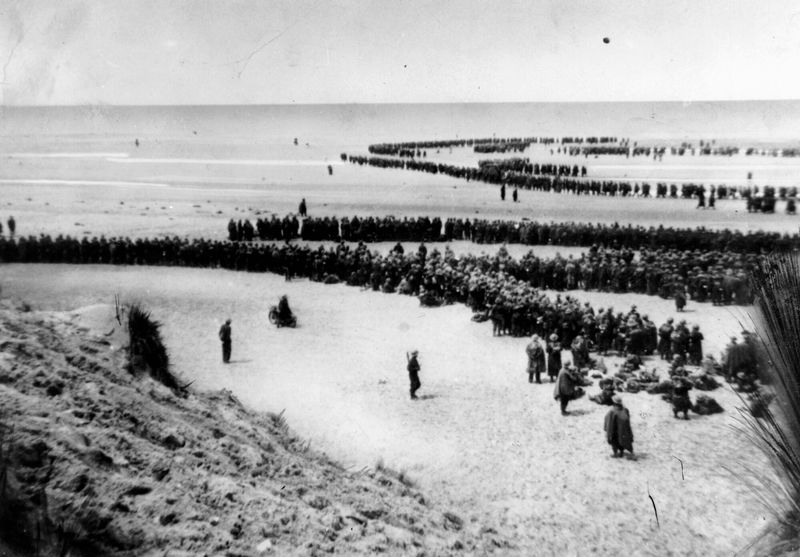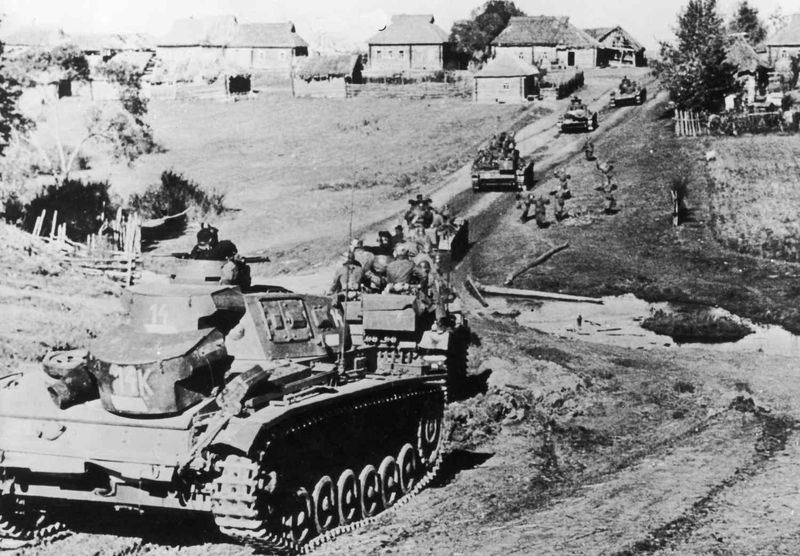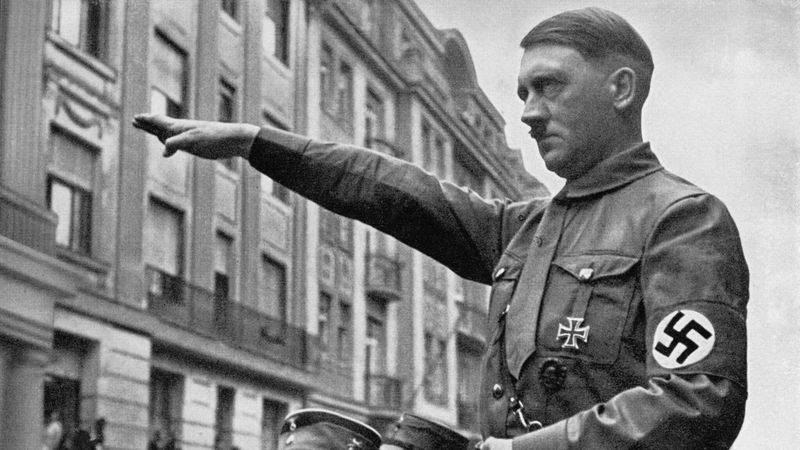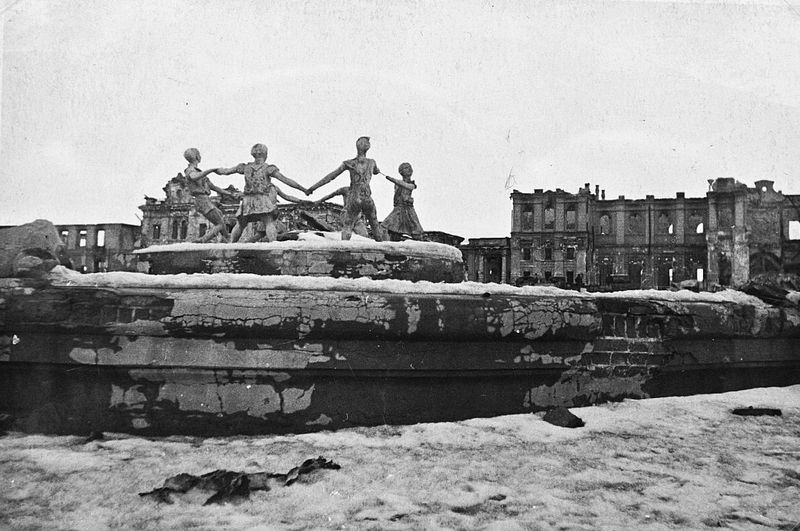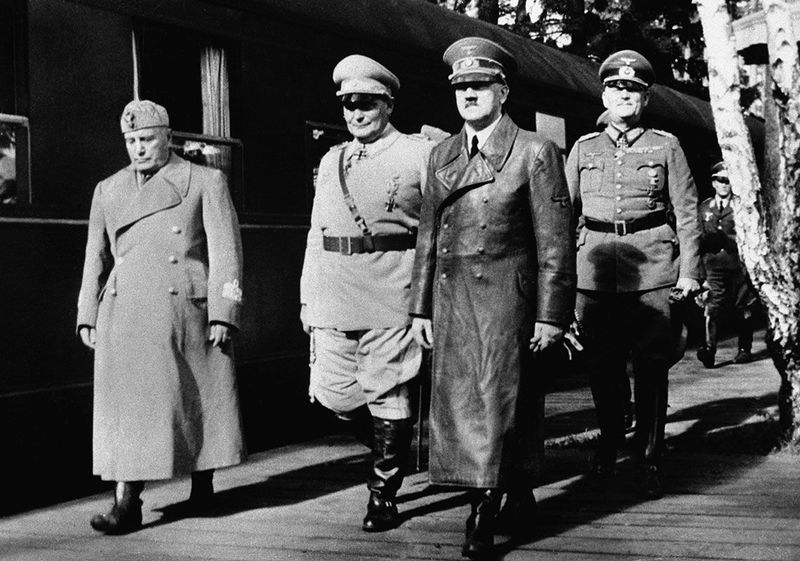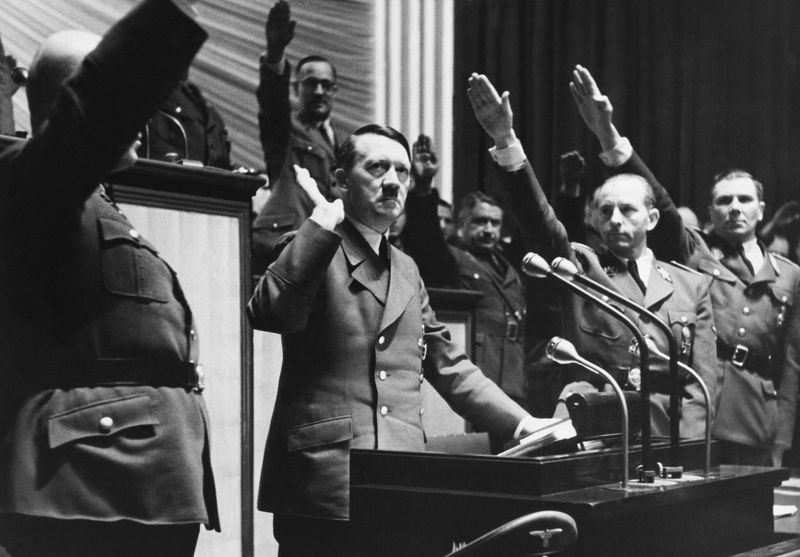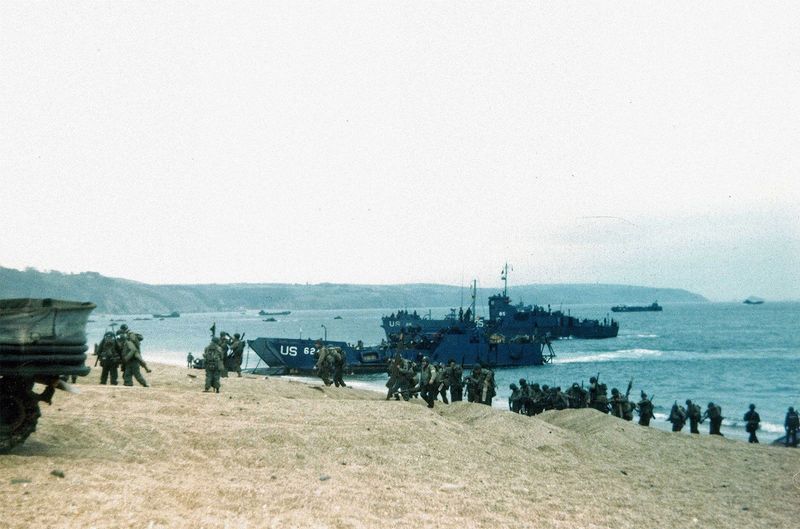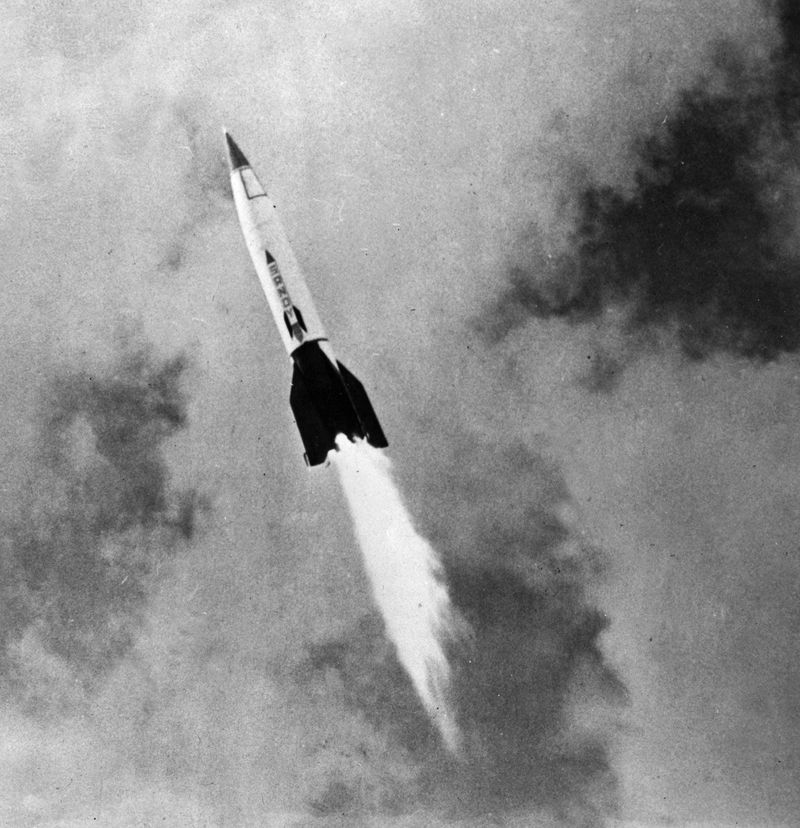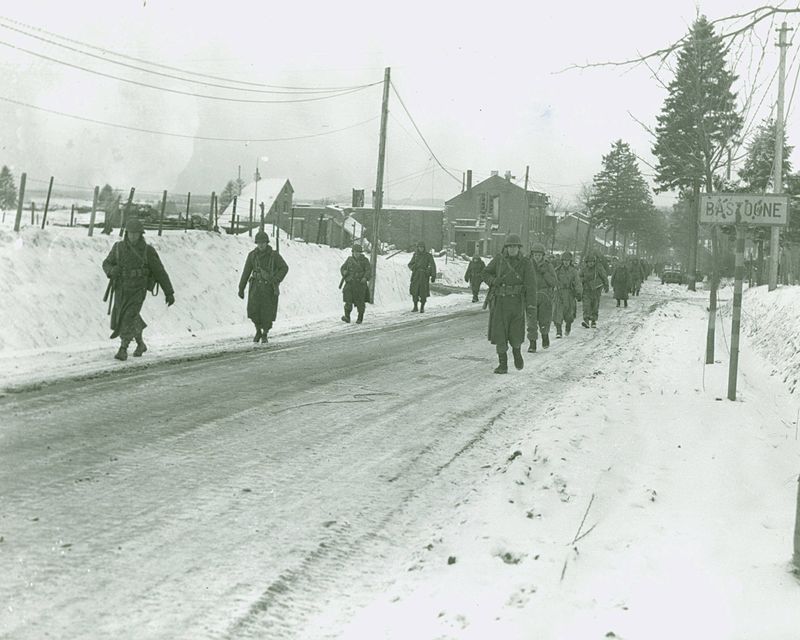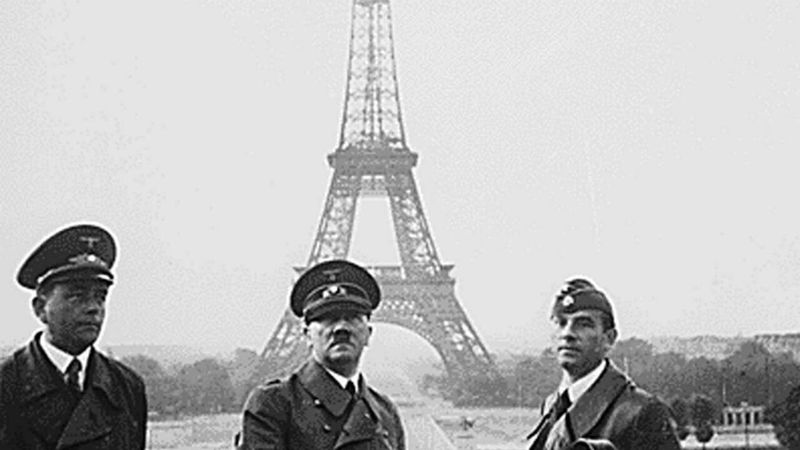During World War II, Adolf Hitler’s strategic miscalculations and hubris played pivotal roles in dooming Nazi Germany.
This blog post explores ten critical blunders that defined this downfall, offering insights into how overconfidence and flawed judgments led to catastrophic consequences for the Third Reich.
1. Allowing the British to Evacuate at Dunkirk (1940)
In 1940, Hitler made a critical error by halting the German advance, allowing over 300,000 British troops to evacuate from Dunkirk. This decision provided Britain with a lifeline, enabling those soldiers to regroup and fight another day.
The move mystified many of Hitler’s generals, who saw a chance to crush the British Expeditionary Force. The halt order stemmed from Hitler’s belief that the Luftwaffe could finish the job, but poor weather hindered air operations.
This miscalculation bolstered British morale and laid the groundwork for future Allied operations, highlighting the peril of underestimating one’s opponent.
2. Delaying Operation Barbarossa (1941)
The decision to delay Operation Barbarossa in 1941 proved disastrous for Nazi Germany. Initially scheduled for May, the invasion was postponed due to Hitler’s need to secure the Balkans, pushing it to late June.
This delay shortened the campaign season and left German troops vulnerable to the Russian winter. The freezing temperatures, coupled with extended supply lines, strained the Wehrmacht’s resources.
The failure to capture Moscow before winter allowed the Soviet Union to regroup and launch a counteroffensive. This blunder demonstrated the dangers of hubris and the consequences of poor strategic timing.
3. Underestimating the Soviet Union
Hitler’s underestimation of the Soviet Union’s resilience became a costly mistake. Expecting a swift victory, he was unprepared for the fierce resistance and vast resources of the USSR.
The Eastern Front turned into a prolonged and brutal conflict, draining German manpower and resources. The harsh winters and extended supply lines further complicated operations.
This misjudgment showcased Hitler’s failure to grasp the scale of the Soviet war machine and the determination of its people. It was a critical factor in the eventual collapse of Nazi Germany, emphasizing the perils of overconfidence in warfare.
4. Over-Focusing on Stalingrad (1942–43)
The focus on capturing Stalingrad became one of Hitler’s most notorious blunders. Insisting on holding the city at all costs, he refused to permit tactical retreats, even as the situation became untenable.
The encirclement by Soviet forces led to the surrender of the German 6th Army, marking a turning point on the Eastern Front. This obsession drained resources and cost countless lives, weakening the Wehrmacht’s ability to defend elsewhere.
The defeat shattered the myth of German invincibility and demonstrated the perils of rigid strategic thinking in dynamic combat environments, making it a pivotal moment in the war.
5. Micromanaging Military Operations
Hitler’s tendency to micromanage military operations stifled the creativity and judgment of his experienced generals. By overruling their advice and issuing contradictory directives, he undermined strategic planning and operational efficiency.
His refusal to authorize retreats or tactical withdrawals led to unnecessary losses and prolonged engagements. This centralized control eroded morale and initiative within the ranks, as commanders were forced to adhere to unworkable orders.
The inflexibility of Hitler’s command style contributed to several military setbacks, illustrating the risks of a single leader’s hubris overshadowing collective expertise in the conduct of war.
6. Declaring War on the United States (1941)
Hitler’s decision to declare war on the United States after Pearl Harbor was a strategic miscalculation. This action united two powerful adversaries—the U.S. and the USSR—against Nazi Germany, significantly escalating the conflict.
The entry of the industrially powerful United States provided the Allies with substantial resources and manpower, tilting the balance of war. The increased production capacity and military support overwhelmed Axis forces on multiple fronts.
Hitler’s declaration was driven by ideological solidarity with Japan, yet it failed to account for the long-term ramifications, making it a key blunder that contributed to Germany’s ultimate defeat.
7. Ignoring the Threat of Allied Landings in France
The failure to adequately prepare for the Allied landings in France was a catastrophic oversight. Convinced that the main invasion would occur at Calais, Hitler delayed reinforcements on D-Day and hesitated to release panzer divisions.
This misjudgment allowed the Allies to secure a foothold in Normandy, facilitating further operations. The lack of a swift and decisive response demonstrated poor intelligence and strategic rigidity, critical in a rapidly evolving conflict.
The Normandy landings marked the beginning of the end for Nazi Germany, underscoring the importance of adaptability and the high cost of strategic errors in warfare.
8. Misuse of Resources on “Wonder Weapons”
Hitler’s fixation on ‘wonder weapons’ like the V-2 rocket diverted crucial resources from more pressing military needs. While these projects showcased technological prowess, they failed to deliver a decisive advantage on the battlefield.
The allocation of manpower, materials, and funds to these endeavors hampered the production and supply of essential equipment—tanks, planes, and munitions—for frontline troops.
This misallocation reflected a misplaced belief in technological solutions over conventional warfare necessities, ultimately undermining the war effort.
The lesson here emphasizes the importance of prioritizing practical military requirements over ambitious, yet impractical, innovations in conflict situations.
9. The Failure of the Battle of the Bulge (1944–45)
The Battle of the Bulge was Nazi Germany’s last major offensive in the West and a desperate gamble. Initially successful, the offensive quickly stalled due to a lack of fuel, harsh winter conditions, and strong Allied resistance.
This audacious plan overextended German forces, already depleted and exhausted. The failure of this operation not only drained precious resources but also dashed hopes of negotiating a favorable peace.
The inability to capitalize on the initial surprise highlighted the unsustainability of Germany’s military strategy, marking a significant moment in the Allies’ path to victory and the eventual collapse of the Third Reich.
10. Refusing to Adapt to Changing Realities
Throughout the war, Hitler’s refusal to adapt to changing realities proved to be a fatal flaw. Clinging to initial plans and ideological ambitions, he ignored shifting battlefield conditions and sound military advice.
This obstinacy led to missed opportunities and repeated strategic errors, hastening Nazi Germany’s demise. The rigid adherence to outdated strategies, despite clear evidence of their ineffectiveness, further strained resources and morale.
Hitler’s inflexibility served as a cautionary tale about the dangers of ignoring the dynamic nature of warfare, where adaptive thinking and responsiveness are crucial to achieving and maintaining a strategic advantage.
